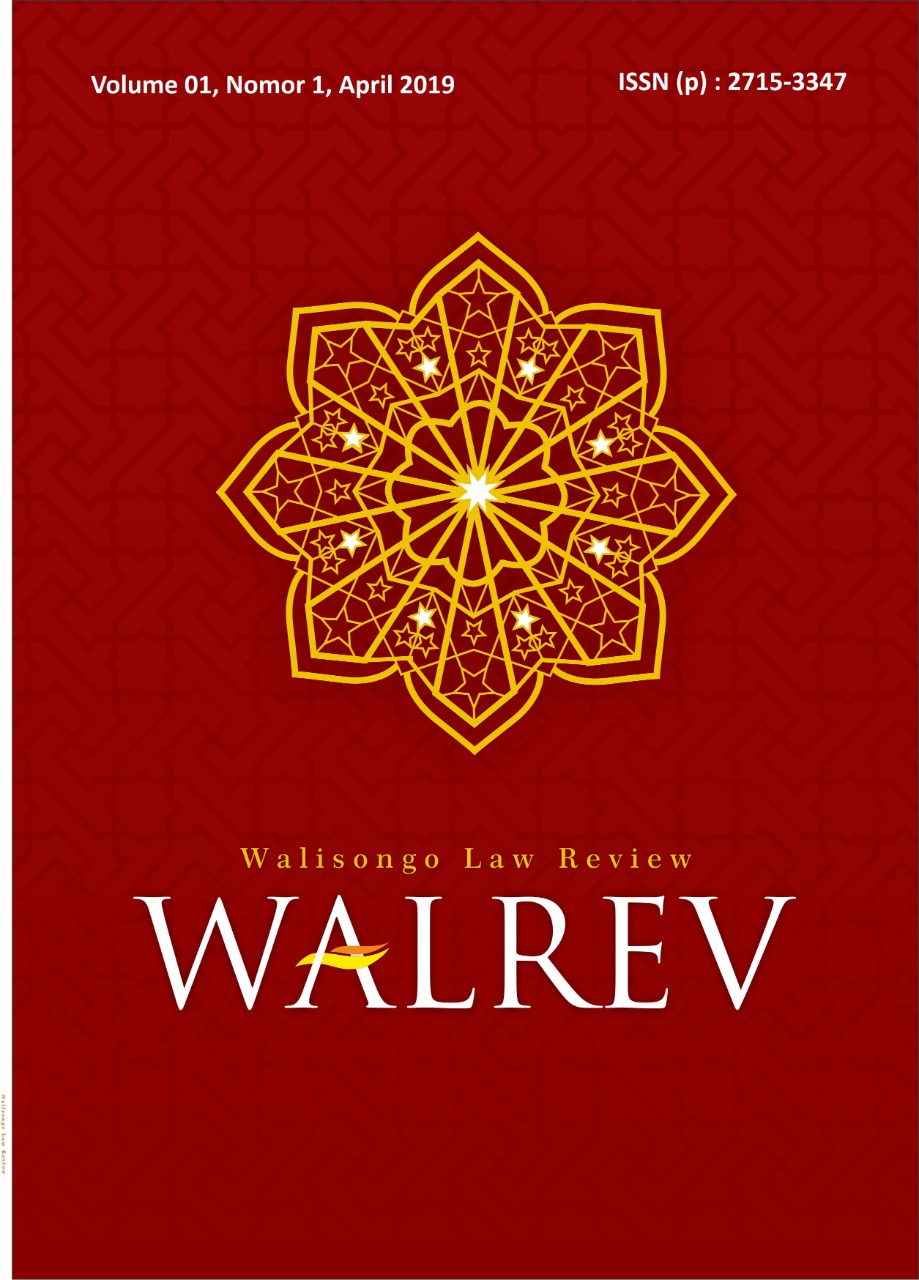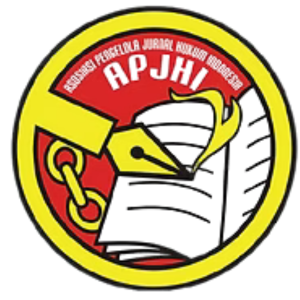Forgiveness of Judges: Local Wisdom in the Concept of National Criminal Law
DOI:
https://doi.org/10.21580/walrev.2019.1.1.4757Keywords:
Crime, treason, renewal of criminal lawAbstract
Criminal law, as an instrument of guarding public order, has two functions. The first one is as general function to regulate life and to organize procedures in society. The second one is as particular function to protect legal interests from crime by giving criminal punishment as sanctions for the perpetrators. Conceptually, forgiveness of the judge emerges to modify rigid legal certainty towards flexible legal certainty. This departs from several cases that have actually fulfilled the formulation of criminal offenses, but their actions are not feasible to be sentenced. Therefore, in the concept of the National criminal law, the Draft of Criminal Code (RKUHP) makes a new formula containing local wisdoms that regulate the possibility of forgiveness of the judge to several cases that are improperly being convicted. This paper focuses on the concept of forgiveness of the judge that cannot be separated from the local wisdom values, including religious values and legal wisdoms living in society.Downloads
References
Abu Bakar, Ali, Medya Syari’ah. 2001. “Penyelesaian Perkara Pidana dalam Adat Aceh”, Jurnal Hukum Islam dan Pranata Sosial Fak. Syari’ah, IAIN Ar-Raniry 8 (23): 33-44
Al Maliki, Abdurrahman. 2002. Sistem Sanksi dalam Islam. Bogor: Pustaka Tariqul Izzah.
Anwar, Yesmil dan Adang. 2008. Pembaharuan Hukum Pidana; Reformasi Hukum Pidana, Jakarta: PT Gramedia Widiasarana Indonesia.
Arief, Barda Nawawi. 2010. Kebijakan Legislatif Dalam Penanggulangan Kejahatan Dengan Pidana Penjara, Cet. IV. Yogyakarta: Genta Publishing.
Arief, Barda Nawawi. 2011. Bunga Rampai Kebijakan Hukum Pidana: Perkembangan Penyusunan Konsep KUHP Baru. Jakarta: Kencana.
Arief, Barda Nawawi. 2011. Tujuan dan Pedoman Pemidanaan (Perspektif Pembaharuan & Perbandingan Hukum Pidana. Semarang: Pustaka Magister.
Arief, Barda Nawawi. 2012. Pembangunan Sistem Hukum Nasional. Semarang: Penerbit Pustaka Magister.
Chazwani, Adami, Stelsel Pidana, Tindak Pidana, Teori-Teori Pemidanaan & Batas Berlakunya Hukum Pidana, Jakarta: Raja Grafindo, 2010.
Hamzah, Andi. 2008. Hukum Acara Pidana Indonesia. Jakarta: Sinar Grafika.
Harahap, M. Yahya. 2006. Pembahasan Permasalahan dan Penerapan KUHAP. Jakarta: Sinar Grafika.
Ludiana, Tia, 2015. Permaafan Hakim dalam Kebijakan Legislasi/Formulasi Hukum Pidana (Penegakan Hukum Pidana In Abstracto). Semarang: Magister Ilmu Hukum.
Muladi. 2008. Lembaga Pidana Bersyarat. Bandung: Alumni.
P.A.F Lamintang dan Theo Lamintang, 2010. Hukum Penitensier Indonesia. Jakarta: Sinar Grafika.
Rahardjo, Satjipto. 1980. Hukum dan Masyarakat. Bandung: Angkasa.
Rahardjo, Satjipto. 2006. Sisi-Sisi Lain dari Hukum Di Indonesia. Jakarta: Kompas.
R-KUHAP tahun 2014.
Sadli, Saparinah. 1976. Persepsi Sosial Mengenai Perilaku Menyimpang. Jakarta: Bulan Bintang.
Salahudin, Siti Maryam. 2008. “Peranan Hukum Adat dalam Pembangunan Hukum Nasional.” Journal Konstitusi 5 (2).
Saputro, Adery Ardhan. 2016. “Konsepsi Rechterlijk Pardon atau Pemaafan Hakim dalam Rancangan KUHP.” Jurnal Mimbar Hukum 28 (1).
Soesilo, R. 1988. Kitab Undang-Undang Hukum Pidana (KUHP) Serta Komentar-Komentarnya Lengkap Pasal Demi Pasal. Bogor: Politea.
Sudarto. 1990. Hukum Pidana I. Semarang: Yayasan Sudarto.
Tait, David. 2001. “Pardons in Perspective: The Role of Forgiveness in Criminal Justice.” U.S, Federal Sentecing Report, 2 (1).










